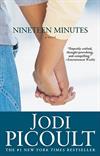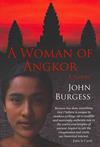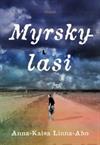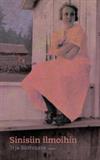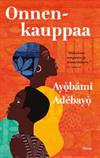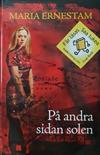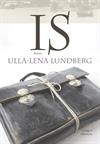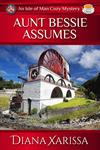
Hard Times
Registered by ForeignExchange of Wijchen, Gelderland Netherlands on 1/22/2009
 This Book is Currently in the Wild!
This Book is Currently in the Wild!
 This Book is Currently in the Wild!
This Book is Currently in the Wild!
2 journalers for this copy...
Journal Entry 1 by ForeignExchange from Wijchen, Gelderland Netherlands on Thursday, January 22, 2009
Added to BCZ ForeignExchange: An English-language BookCrossing Zone based in the Nijmegen / Arnhem region of the Netherlands (Click here for more details.) If you would like to borrow or swap this or any other book on the shelf, click on the ForeignExchange link at the top of this Journal Entry to go to the bookshelf, and send a PM (Private Message) - click on the link underneath the bookshelf statistics.
I'm not the greatest fan of Dickens because I was put off by 'The Pickwick Papers' as a teenager, but really enjoyed 'Oliver' and 'A Christmas Carol'. This was more along the line of the latter, so I enjoyed it, except for the "comic" accent of the circus master; his speeches were obviously designed to be read out loud on Dickens' theatre tours, but are virtually impossible to read.
Apparently this book was written in instalments to boost the circulation of a weekly magazine, and it certainly starts with a light touch, with the pompous schoolmaster Gradgrind, his weak-brained wife and the tiresome Josiah Bounderby. I wonder if the Monty Python sketch about being brought up in a paper bag (http://www.phespirit.info/montypython/four_yorkshiremen.htm) was based on Bounderby's tales of his youth; notably, Third Yorkshireman is called Josiah...
Dickens uses the story as a vehicle for criticising society, either directly with satirical comments on the utilitarian design of Coketown, or implicitly and symbolically in the fates which befall the various characters. He criticises the sterile, fact-based education at Gradgrind's school, which results in the weak and vindictive Bitzer, the unmoralled gambler Tom and his virtuous sister Louisa, who complains that their upbringing has made her totally unsuitable as a wife or companion.
One of the main themes in the book is, not unexpectedly, given the title, the contrast between the rich and the poor. Not only the miserable living conditions and harsh working conditions are highlighted, but the contrast between the morals of the hard-working Hands and the indolent and selfish middle-classes. Louisa, when her marriage fails, is allowed to return to her family home as if she had never been married, and Dickens comments that the rich somehow manage to override their marriage troubles, but poor people like the faithful and hardworking Stephen Blackpool are constantly brought low to the verges of destitution by a bad marriage. Dickens, being a realist, doesn't fail to have immoral and moral characters in all layers of society, with Stephen's drunken wife as abhorrent as the despicable Tom, and Louisa and Sissy's goodness balanced by the honest Stephen and Rachel. Again, as a realist, not everybody receives their come-uppance or their reward for their behaviour, but I have to say I was rather shocked at the way in which Tom was able to escape his rightful dues; Stephen Blackpool could only do so in a better place.
This book is full of Dickensian humour, like it or not, and it also plays to the Victorian love of melodrama, the equivalent of today's soap opera, particularly as this was published in episodes. The book I read before this was Nathaniel Hawthorne's
[book:The Scarlet Letter|16124837], written just four years earlier in America, so I was interested to contrast them. Dickens wins on all counts of readability, except that they both used the device of accents which made parts of the books difficult to follow (Dickens' comic circus-master and Hawthorne's fake 17th century speech patterns). Dickens was criticising current society, hoping to initiate change, whereas Hawthorne was critical of historical injustices. As such, Dickens' book has an immediacy which Hawthorne's lacked. One Victorian device which Dickens did not use in 'Hard Times', but used to great effect in 'A Christmas Carol', was the interest in spiritualism and ghosts, the use of heavy-handed imagery of light and dark, good and evil; Dickens has, in this book at least, a more practical tale to tell, and I enjoyed it the more for it. Dickens is winning me over, Hawthorne has lost me forever!
Registered as a Bookcrossing book: www.bookcrossing.com/journal/6898963
This was on the original '1001 Books You Must Read Before You Die' list, but has now been removed.I'm not the greatest fan of Dickens because I was put off by 'The Pickwick Papers' as a teenager, but really enjoyed 'Oliver' and 'A Christmas Carol'. This was more along the line of the latter, so I enjoyed it, except for the "comic" accent of the circus master; his speeches were obviously designed to be read out loud on Dickens' theatre tours, but are virtually impossible to read.
Apparently this book was written in instalments to boost the circulation of a weekly magazine, and it certainly starts with a light touch, with the pompous schoolmaster Gradgrind, his weak-brained wife and the tiresome Josiah Bounderby. I wonder if the Monty Python sketch about being brought up in a paper bag (http://www.phespirit.info/montypython/four_yorkshiremen.htm) was based on Bounderby's tales of his youth; notably, Third Yorkshireman is called Josiah...
Dickens uses the story as a vehicle for criticising society, either directly with satirical comments on the utilitarian design of Coketown, or implicitly and symbolically in the fates which befall the various characters. He criticises the sterile, fact-based education at Gradgrind's school, which results in the weak and vindictive Bitzer, the unmoralled gambler Tom and his virtuous sister Louisa, who complains that their upbringing has made her totally unsuitable as a wife or companion.
One of the main themes in the book is, not unexpectedly, given the title, the contrast between the rich and the poor. Not only the miserable living conditions and harsh working conditions are highlighted, but the contrast between the morals of the hard-working Hands and the indolent and selfish middle-classes. Louisa, when her marriage fails, is allowed to return to her family home as if she had never been married, and Dickens comments that the rich somehow manage to override their marriage troubles, but poor people like the faithful and hardworking Stephen Blackpool are constantly brought low to the verges of destitution by a bad marriage. Dickens, being a realist, doesn't fail to have immoral and moral characters in all layers of society, with Stephen's drunken wife as abhorrent as the despicable Tom, and Louisa and Sissy's goodness balanced by the honest Stephen and Rachel. Again, as a realist, not everybody receives their come-uppance or their reward for their behaviour, but I have to say I was rather shocked at the way in which Tom was able to escape his rightful dues; Stephen Blackpool could only do so in a better place.
This book is full of Dickensian humour, like it or not, and it also plays to the Victorian love of melodrama, the equivalent of today's soap opera, particularly as this was published in episodes. The book I read before this was Nathaniel Hawthorne's
[book:The Scarlet Letter|16124837], written just four years earlier in America, so I was interested to contrast them. Dickens wins on all counts of readability, except that they both used the device of accents which made parts of the books difficult to follow (Dickens' comic circus-master and Hawthorne's fake 17th century speech patterns). Dickens was criticising current society, hoping to initiate change, whereas Hawthorne was critical of historical injustices. As such, Dickens' book has an immediacy which Hawthorne's lacked. One Victorian device which Dickens did not use in 'Hard Times', but used to great effect in 'A Christmas Carol', was the interest in spiritualism and ghosts, the use of heavy-handed imagery of light and dark, good and evil; Dickens has, in this book at least, a more practical tale to tell, and I enjoyed it the more for it. Dickens is winning me over, Hawthorne has lost me forever!
This was on the original '1001 Books You Must Read Before You Die' list, but has now been removed.
Apparently this book was written in instalments to boost the circulation of a weekly magazine, and it certainly starts with a light touch, with the pompous schoolmaster Gradgrind, his weak-brained wife and the tiresome Josiah Bounderby. I wonder if the Monty Python sketch about being brought up in a paper bag (http://www.phespirit.info/montypython/four_yorkshiremen.htm) was based on Bounderby's tales of his youth; notably, Third Yorkshireman is called Josiah...
Dickens uses the story as a vehicle for criticising society, either directly with satirical comments on the utilitarian design of Coketown, or implicitly and symbolically in the fates which befall the various characters. He criticises the sterile, fact-based education at Gradgrind's school, which results in the weak and vindictive Bitzer, the unmoralled gambler Tom and his virtuous sister Louisa, who complains that their upbringing has made her totally unsuitable as a wife or companion.
One of the main themes in the book is, not unexpectedly, given the title, the contrast between the rich and the poor. Not only the miserable living conditions and harsh working conditions are highlighted, but the contrast between the morals of the hard-working Hands and the indolent and selfish middle-classes. Louisa, when her marriage fails, is allowed to return to her family home as if she had never been married, and Dickens comments that the rich somehow manage to override their marriage troubles, but poor people like the faithful and hardworking Stephen Blackpool are constantly brought low to the verges of destitution by a bad marriage. Dickens, being a realist, doesn't fail to have immoral and moral characters in all layers of society, with Stephen's drunken wife as abhorrent as the despicable Tom, and Louisa and Sissy's goodness balanced by the honest Stephen and Rachel. Again, as a realist, not everybody receives their come-uppance or their reward for their behaviour, but I have to say I was rather shocked at the way in which Tom was able to escape his rightful dues; Stephen Blackpool could only do so in a better place.
This book is full of Dickensian humour, like it or not, and it also plays to the Victorian love of melodrama, the equivalent of today's soap opera, particularly as this was published in episodes. The book I read before this was Nathaniel Hawthorne's
[book:The Scarlet Letter|16124837], written just four years earlier in America, so I was interested to contrast them. Dickens wins on all counts of readability, except that they both used the device of accents which made parts of the books difficult to follow (Dickens' comic circus-master and Hawthorne's fake 17th century speech patterns). Dickens was criticising current society, hoping to initiate change, whereas Hawthorne was critical of historical injustices. As such, Dickens' book has an immediacy which Hawthorne's lacked. One Victorian device which Dickens did not use in 'Hard Times', but used to great effect in 'A Christmas Carol', was the interest in spiritualism and ghosts, the use of heavy-handed imagery of light and dark, good and evil; Dickens has, in this book at least, a more practical tale to tell, and I enjoyed it the more for it. Dickens is winning me over, Hawthorne has lost me forever!
Registered as a Bookcrossing book: www.bookcrossing.com/journal/6898963
This was on the original '1001 Books You Must Read Before You Die' list, but has now been removed.I'm not the greatest fan of Dickens because I was put off by 'The Pickwick Papers' as a teenager, but really enjoyed 'Oliver' and 'A Christmas Carol'. This was more along the line of the latter, so I enjoyed it, except for the "comic" accent of the circus master; his speeches were obviously designed to be read out loud on Dickens' theatre tours, but are virtually impossible to read.
Apparently this book was written in instalments to boost the circulation of a weekly magazine, and it certainly starts with a light touch, with the pompous schoolmaster Gradgrind, his weak-brained wife and the tiresome Josiah Bounderby. I wonder if the Monty Python sketch about being brought up in a paper bag (http://www.phespirit.info/montypython/four_yorkshiremen.htm) was based on Bounderby's tales of his youth; notably, Third Yorkshireman is called Josiah...
Dickens uses the story as a vehicle for criticising society, either directly with satirical comments on the utilitarian design of Coketown, or implicitly and symbolically in the fates which befall the various characters. He criticises the sterile, fact-based education at Gradgrind's school, which results in the weak and vindictive Bitzer, the unmoralled gambler Tom and his virtuous sister Louisa, who complains that their upbringing has made her totally unsuitable as a wife or companion.
One of the main themes in the book is, not unexpectedly, given the title, the contrast between the rich and the poor. Not only the miserable living conditions and harsh working conditions are highlighted, but the contrast between the morals of the hard-working Hands and the indolent and selfish middle-classes. Louisa, when her marriage fails, is allowed to return to her family home as if she had never been married, and Dickens comments that the rich somehow manage to override their marriage troubles, but poor people like the faithful and hardworking Stephen Blackpool are constantly brought low to the verges of destitution by a bad marriage. Dickens, being a realist, doesn't fail to have immoral and moral characters in all layers of society, with Stephen's drunken wife as abhorrent as the despicable Tom, and Louisa and Sissy's goodness balanced by the honest Stephen and Rachel. Again, as a realist, not everybody receives their come-uppance or their reward for their behaviour, but I have to say I was rather shocked at the way in which Tom was able to escape his rightful dues; Stephen Blackpool could only do so in a better place.
This book is full of Dickensian humour, like it or not, and it also plays to the Victorian love of melodrama, the equivalent of today's soap opera, particularly as this was published in episodes. The book I read before this was Nathaniel Hawthorne's
[book:The Scarlet Letter|16124837], written just four years earlier in America, so I was interested to contrast them. Dickens wins on all counts of readability, except that they both used the device of accents which made parts of the books difficult to follow (Dickens' comic circus-master and Hawthorne's fake 17th century speech patterns). Dickens was criticising current society, hoping to initiate change, whereas Hawthorne was critical of historical injustices. As such, Dickens' book has an immediacy which Hawthorne's lacked. One Victorian device which Dickens did not use in 'Hard Times', but used to great effect in 'A Christmas Carol', was the interest in spiritualism and ghosts, the use of heavy-handed imagery of light and dark, good and evil; Dickens has, in this book at least, a more practical tale to tell, and I enjoyed it the more for it. Dickens is winning me over, Hawthorne has lost me forever!
This was on the original '1001 Books You Must Read Before You Die' list, but has now been removed.
Journal Entry 3 by bookguide at De Kluizenaar in Nijmegen, Gelderland Netherlands on Saturday, April 6, 2013
Released 11 yrs ago (4/6/2013 UTC) at De Kluizenaar in Nijmegen, Gelderland Netherlands
WILD RELEASE NOTES:
Released at the meeting.
This book has been released as part of the following BookCrossing challenges:
- The Ultimate Challenge - read and release books, with extra points for a monthly theme
- Reduce Mount TBR (To Be Read) - read and release books on the TBR list since before the end of 2012. My reading goal is 65 books.
- Pages Read Challenge - read a self-set target number of pages in 2013. My goal is 26,000.
- 1001 Books You Must Read Before You Die Challenge. 2013 goal: 24.
This book has been released as part of the following BookCrossing challenges:
- The Ultimate Challenge - read and release books, with extra points for a monthly theme
- Reduce Mount TBR (To Be Read) - read and release books on the TBR list since before the end of 2012. My reading goal is 65 books.
- Pages Read Challenge - read a self-set target number of pages in 2013. My goal is 26,000.
- 1001 Books You Must Read Before You Die Challenge. 2013 goal: 24.

